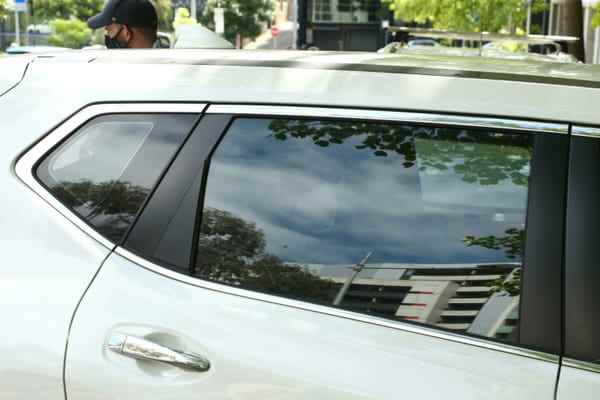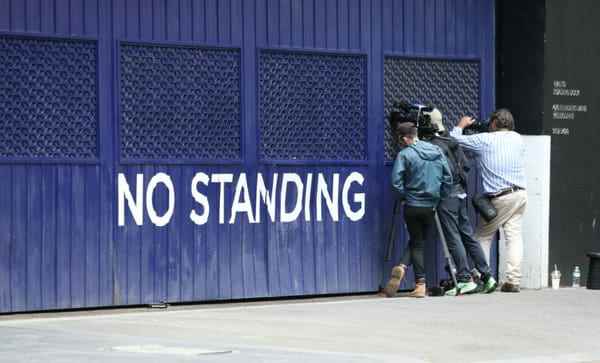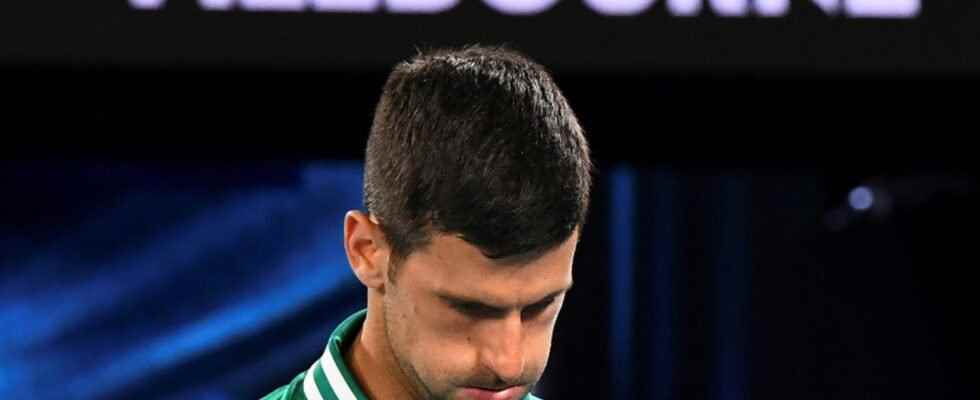To hope to make tennis history, Novak Djokovic first has an appointment with the Federal Court of Australia: three judges will decide on Sunday from 9:30 a.m. local time (Saturday 11:30 p.m.) whether the world No.1 should be expelled after the cancellation of his visa for the second time by the Australian government, which maintains that the Serb, not vaccinated against Covid-19, constitutes a “health risk”.
Accustomed to high-intensity finals, “Djoko” will play a “match” that could have long-term repercussions for his career.
With just hours to go until the Australian Open opens where he hopes to win a record-breaking 21st Grand Slam title, the Federal Court interim hearing must decide whether the Serb should be sent home and banned from playing. Australian territory for three years, or if on the contrary he can play the tournament.
While waiting for this new and decisive appointment with justice, Djokovic, 34, spent the night from Saturday to Sunday in the detention center with basic comfort where he had already spent several days last week.
The arrival of the convoy of vehicles, one most likely carrying Djokovic, at the now world-famous Park Hotel was followed by photographers and TV crews.
– “Health risk” –
In his pleadings filed in court on Saturday, Immigration Minister Alex Hawke argued that Djokovic’s presence in the country “is likely to pose a health risk to the Australian community”.
He says it encourages “anti-vaccination sentiment” and could deter Australians from getting their booster shots, as the Omicron variant continues to spread at high speed.
The champion’s presence in Australia could even “lead to an upsurge in civil unrest”, added the minister, who on Friday canceled Djokovic’s visa for the second time under his discretionary power, citing “sanitary and environmental reasons. public order”.

A car most likely carrying Novak Djokovic arrives at the Park Hotel, the Melbourne detention center where the world No.1 was placed on January 15, 2022
© AFP – BRANDON MALONE
Even if he described the risk that Djokovic himself infects Australians as “negligible”, the minister considered that his past “contempt” of health rules against Covid constitutes a bad example.
The minister “does not cite any evidence” in support of his arguments, retorted the player’s lawyers.
This is the second time that Djokovic has been subject to deportation proceedings.
He had been blocked on his arrival in Australia on January 5 and placed in administrative detention for the first time. The player, who contracted Covid-19 in December, had hoped for an exemption to enter the country without being vaccinated, but the authorities did not accept this explanation.
The Australian government suffered a humiliating setback on January 10 when a judge blocked Djokovic’s deportation, reinstated his visa and ordered his immediate release.
In a statement on Wednesday, Djokovic admitted to incorrectly filling out his entry declaration to Australia.
– “Incompetence” –
The player with 86 ATP titles, seen in Serbia and Spain in the two weeks before his arrival, contrary to what he declared in the immigration form upon his arrival, pleaded “human error”.

Journalists wait outside the offices of Novak Djokovic’s lawyers in Melbourne on January 15, 2022
© AFP – BRANDON MALONE
This twisty soap opera takes place in a country whose people have endured some of the toughest anti-Covid restrictions in the world for nearly two years, and where elections are scheduled for May.
Hence a charged political context. Pressure has intensified around Conservative Prime Minister Scott Morrison, accused of “incompetence” by the Labor opposition.
The Djokovic affair is also followed assiduously in Serbia where “Nole” is considered a national hero. On Friday, President Aleksandar Vucic accused Australia of “mistreating” him.
This case made another indirect victim, the Croatian tennis coach Filip Serdarusic, who had benefited, like Novak Djokovic, from a medical exemption to enter Australia, before being expelled.
“If they arrested him, then they had to arrest us too,” Serdarusic complained in the Croatian press.
All rights of reproduction and representation reserved. © (2022) Agence France-Presse
